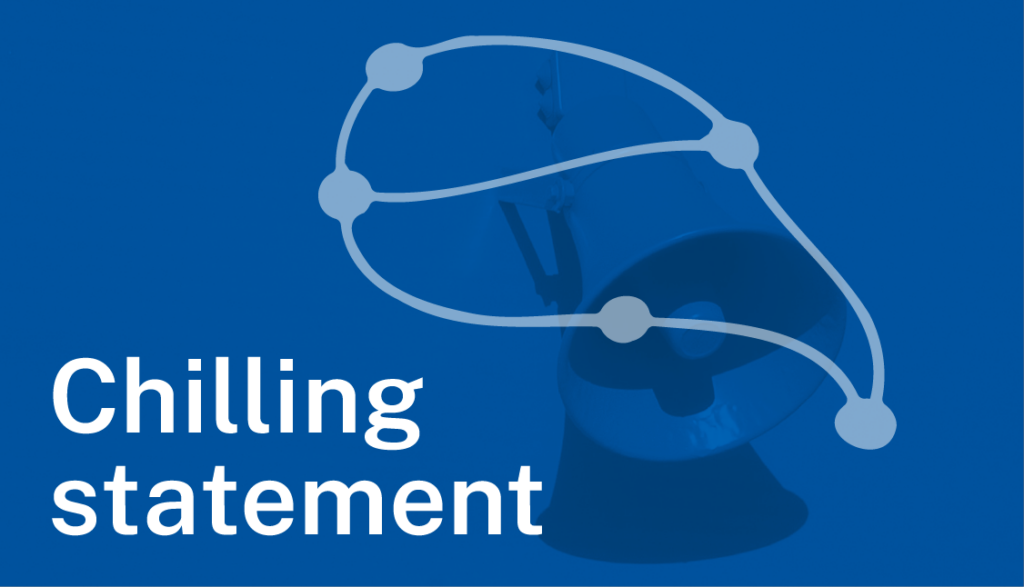In testimony at a House of Commons committee, former Conservative MP and cabinet minister Chris Alexander accused Ottawa Citizen journalist David Pugliese of being an “agent” paid by the Russian intelligence service.
Alexander appeared on Oct. 24, 2024 as a witness at the House of Commons Standing Committee on Public Safety and National Security, which is examining Russian political interference and disinformation in Canada.
Alexander tabled documents at the committee which he claimed identified Pugliese as an agent who was recruited and paid by the KGB, the Cold War-era Russian intelligence agency. Pugliese called the accusations “entirely false” and said that they “merely highlight another tactic in the ongoing attack against Canadian journalism.”
The documents, Alexander alleged, were from the archives of the Ukrainian KGB, produced before the collapse of the Soviet Union. He claimed that the documents had been “authenticated by several of the world’s leading experts on KGB documents,” and said they had been shared with Canadian national security authorities.
Alexander claimed that the documents show that Pugliese operated as a KGB agent from 1982-1990, under the KGB code-name “Stuart.” Alexander claimed, without citing evidence, that “there’s every reason to believe” that Pugliese continued to work as a KGB agent after 1990.
“This is the new norm on how you come at journalists these days; if you can’t show an article is inaccurate, you try to smear people,” Pugliese said in an interview with Canadaland.
Pugliese has extensively covered the Canadian military and defence establishment for more than four decades. His work includes coverage of Canadian troops in Afghanistan, as well as investigative reporting on defence procurement, sexual assault in the military and the Department of Defence’s obstruction of access to information.
Some of Pugliese’s coverage has drawn criticism from Ukrainian government officials – including his reporting on Liberal MP Chrystia Freeland’s grandfather, who collaborated with the Nazis as a senior editor at a Nazi-controlled newspaper in occupied Poland during the Second World War.
Pugliese also reported in 2021 that Canadian military officials in Ukraine met with troops from the Azov Battalion, part of the Ukrainian national guard, despite a Canadian government assessment that some members of the unit described themselves as Nazis. In 2023, he reported on allegations that an Ottawa-based charity mismanaged donations intended to support Ukrainian soldiers.
Global News reported that the two archives which hold KGB records in Ukraine said the documents which Alexander referenced could not be found in their collections.
Experts contacted by Global also noted that although the documents “appeared to be legitimate,” they did not support Alexander’s claim that Pugliese was recruited by Soviet intelligence. “All they say is that an individual by this name came to the attention of KGB officials, not even necessarily very senior ones, and that they were interested in exploring him as a potential target of recruitment,” Simon Miles, an associate professor at Duke University in North Carolina, told Global.
Because Alexander made the unsubstantiated claims before a House committee, he is protected by Parliamentary privilege and cannot be sued for defamation. Alexander did not respond to the Canada Press Freedom Project’s requests for comment.
Earlier in October, weeks before Alexander made the claims at the committee, Pugliese revealed that a federal government report had recommended removing more than half of the names of people honoured on the Ottawa Memorial to the Victims of Communism – including a number of Ukrainians – because of concerns that they may be linked to Nazi or fascist organizations. Alexander was a prominent supporter of the controversial memorial project, which he had announced while he was a cabinet minister.
In 2023, a Ukrainian official told the Kyiv Post in 2023 that the government considered Pugliese “an undesirable person” and alleged that his reporting “coincides with Russian propagandist narratives.”
Alexander echoed these claims in his committee testimony, alleging that Pugliese covered “themes that Moscow would be delighted to promote. They also aim to weaken Canadian support for Ukraine.” He described Pugliese’s coverage of Freeland’s grandfather as “defamatory.” Alexander also claimed, without citing evidence, that “Previous efforts to expose this journalist’s long-running covert ties to Moscow have resulted in attempts to intimidate current and former Canadian parliamentarians … as well as Canadian army officers.”
In a statement, Pugliese rejected the claims: “Mr. Alexander’s fabricated claims are not only ridiculous but dangerous to the safety of my family, particularly my children. His statements would also be libelous had he not uttered them behind the security of Parliamentary committee privilege,” Pugliese wrote on X (formerly Twitter).
In a statement, the Canadian Association of Journalists wrote that it “wholeheartedly denounces the ridiculous accusations … It’s a sad irony these comments were made in a meeting examining disinformation campaigns. These claims are dangerous & designed to undermine the credibility of journalists. Period.”

